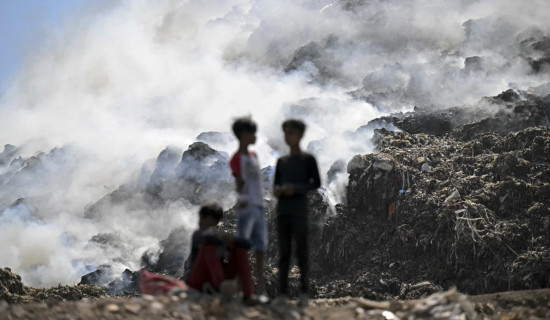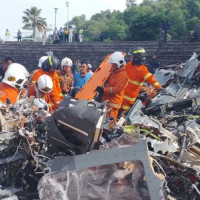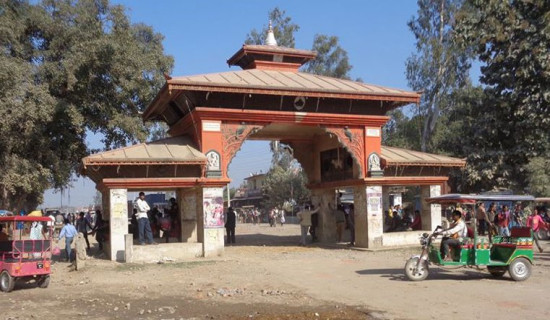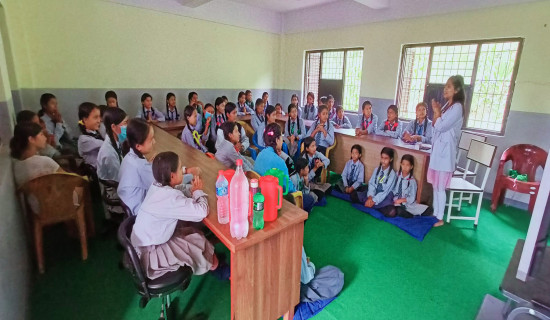- Wednesday, 24 April 2024
Myanmar resistance steadfast against army rule 2 years later
Bangkok, Feb. 2: The prospects for peace in Myanmar, much less a return to democracy, seem dimmer than ever two years after the army seized power from the elected government of Aung San Suu Kyi, experts say.
On Wednesday, legions of opponents of military rule heeded a call by protest organizers to stay home in what they call a “silent strike” to show their strength and solidarity.
The opposition’s General Strike Coordination Body, formed soon after the 2021 takeover, urged people to stay inside in their homes or workplaces from 10 a.m. to 3 p.m. Photos posted on social media showed empty streets in the normally bustling downtown area of Yangon, the country’s largest city, with just a few vehicles on the roads, and there were reports of similar scenes elsewhere.
Small peaceful protests are an almost-daily occurrence throughout the country, but on the anniversary of the Feb. 1, 2021, seizure of power by the army, two points stand out: The level of violence, especially in the countryside, has reached the level of civil war; and the grassroots movement opposing military rule has defied expectations by largely holding off the ruling generals.
The violence extends beyond the rural battlefields where the army is burning and bombing villages, displacing hundreds of thousands of people in what is a largely neglected humanitarian crisis. It also occurs in the cities, where activists are arrested and tortured and urban guerrillas retaliate with bombings and assassinations of targets linked to the military. The military, after closed trials, have also executed by hanging activists accused of “terrorism.”
According to the independent Assistance Association for Political Prisoners, a watchdog group that tracks killings and arrests, 2,940 civilians have been killed by the authorities since the army takeover, and another 17,572 arrested — 13,763 of whom remain detained. The actual death toll is likely to be much higher since the group does not generally include deaths on the side of the military government and cannot easily verify cases in remote areas.
“The level of violence involving both armed combatants and civilians is alarming and unexpected,” said Min Zaw Oo, a veteran political activist in exile who founded the Myanmar Institute for Peace and Security.
“The scale of the killing and harm inflicted on civilians has been devastating, and unlike anything we have seen in the country in recent memory,” he said. When the army ousted Suu Kyi in 2021, it arrested her and top members of her governing National League for Democracy party, which had won a landslide victory for a second term in a November 2020 general election. The military claimed it acted because there had been massive electoral fraud, a claim not backed up by objective election observers. Suu Kyi, 77, is serving prison sentences totalling 33 years after being convicted in a series of politically tainted prosecutions brought by the military.
Shortly after the military seized power and quashed nonviolent protests with lethal force, thousands of young people slipped away to remote rural areas to become guerrilla fighters.
Operating in decentralized “People’s Defence Forces,” or PDFs, they are proving to be effective warriors, specializing in ambushes and occasionally overrunning isolated army and police posts. They have benefited greatly from supplies and training provided by the some of the country’s ethnic minority rebels — Ethnic Armed Organizations, or EAOs — who have been fighting the army for decades for greater autonomy. (AP)
















